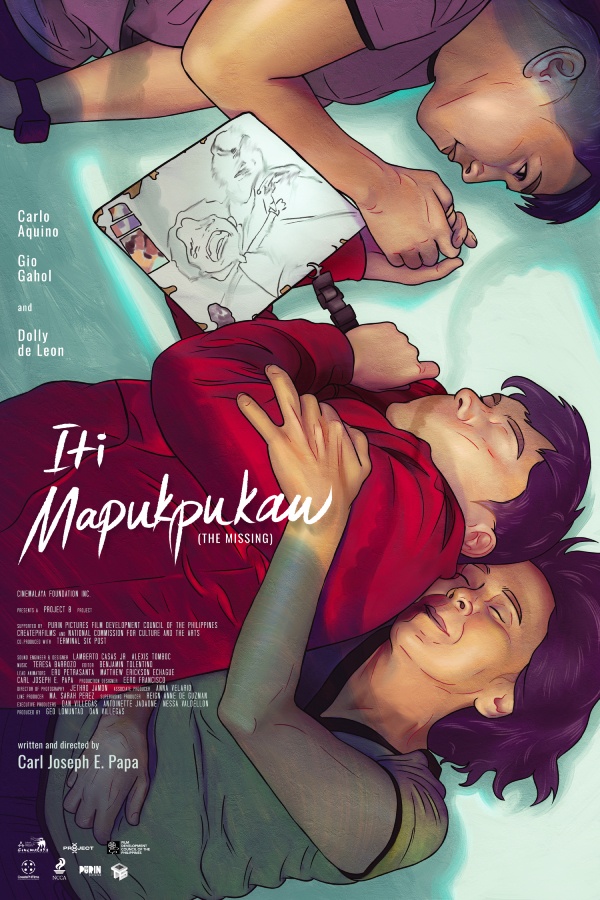
Romance and tradition collide when a middle-aged chicken farmer is unwittingly duped by an online dating scam in Lien Chien-Hung’s gentle dramedy Salli (莎莉). Though everyone tells her the man she thinks she’s talking to on the internet probably isn’t real, Hui-jun (Esther Liu) continues to believe in the possibility of love and a more sophisticated world than that she knows from her rural small-town where everyone knows everyone’s business and she’s looked on as something of a pariah for being unmarried at 38.
Her busybody aunt (Yang Li-yin) in particular is keen that she get married as soon as possible and keeps bringing photos of eligible bachelors most of whom are more than 20 years older than her or just a bit strange. The aunt has also somewhat taken over in the upcoming wedding of Hui-jun’s younger brother Wei-hong (Austin Lin) to the daughter of a local pineapple farmer. She’s had a fengshui master come round and declare that Hui-jun’s bedroom is the best one for the new couple to sleep in so she’s been turfed out, while another fortune teller suggests that as she is unmarried herself Hui-jun shouldn’t even attend the ceremony otherwise the couple will end up arguing for the rest of their lives. Though Wei-hong tells her he doesn’t care about any of that and it’s important to him she attend his wedding, Hui-jun can’t help feeling a little guilty and in the way.
What the aunt doesn’t seem to consider is that after their parents died in an accident, Hui-jun in effect became everyone’s mother which made it impossible for her to have the kind of experiences one needs to get married. She even ended up caring for the daughter of her older brother who abandoned the family after the end of his marriage, though he later took her back to Shanghai where he lives with a much younger Mainland fiancée. Xin-ru has returned home in search of maternal comfort, but Hui-jun knows she will soon have to leave again and she’ll be on her own. It’s Xin-ru who sets her up on an internet dating app explaining that she uses them for “fun” though once Hui-jun starts chatting to “Martin”, a Parisian gallery owner, she can’t help but succumb to romantic fantasy.
There are those who pity Hui-jin or mock her for being taken in by such an obvious scam, even considering giving Martin her life savings for the downpayment on a flat where they could live together in Paris when he proposes to her after a short period of text-based communication facilitated by AI translation. But Hui-jun is lonely and is just wants to feel loved and valued in a way she obviously doesn’t by her family members who are obsessed with her marital status. In any case, it’s through her imaginary romance with Martin that she begins to come into herself, to think about what it is she wants out of life including whether to not she actually wants to get married, and embrace a new sense of confidence as a person in her own right.
A disaster at home sends her to Paris, alone, hoping to clarify her situation which she eventually does though not in the way anyone might have expected. An elderly woman gives her a piece of life advice that after a divorce and several years of unsatisfying dating experiences, she realised that she just do things on her own and that was okay. What the opportunity affords her is the chance to rediscover herself as distinct from her roles as a sister, aunt, and surrogate mother and wonder if she might be happy enough with her chickens and the dog for company. Filled with a gentle humour and an affection for small-town, rural life in Taiwan if also a yearning for a little sophistication, the film has boundless sympathy for its put upon middle-aged heroine as trapped as some of the chickens in her coop by outdated patriarchal thinking and longing to strut free like the white cockerel she seems to treat almost as a friend. Taichung may not have the Eiffel Tower, but it has its charms and as Hui-jun is discovering the freedom to decide on her own future.
Salli screened as part of this year’s Osaka Asian Film Festival.
Original trailer (Traditional Chinese / English subtitles)


















